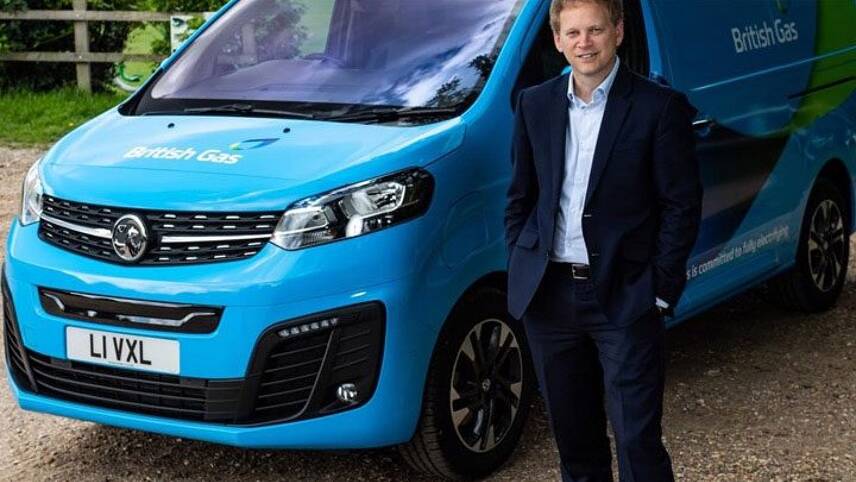Register for free and continue reading
Join our growing army of changemakers and get unlimited access to our premium content

The new vans will hit the road by the end of next year. Image: Centrica
The Centrica-owned firm has today (22 February) announced an order for 2,000 pure electric Vivaro-e vans from Vauxhall, which are due to be integrated into its fleet by the start of next year. It had already placed an order for 1,000 of these vans last summer.
Vauxhall claims that the 75kW Vivaro-e has a range of up to 205 miles and that it can reach 80% of this range with a 45-minute session at a rapid charging point. The model is eligible for the UK Government’s grant scheme that covers 20% of the upfront cost for businesses.
As for British Gas, the firm is one of the UK’s biggest fleet operators, with 12,000 vehicles. It is now striving to electrify the entirety of this fleet, along with its 1,500 company cars, by 2025, having previously set a 2030 deadline.
British Gas’s own fleet electrification commitments mirror its changing business model and services, the company said in a statement. The firm notably provides charger installation and utility tariffs linked to EV use to both business and domestic customers. It is aiming to recruit 1,000 engineering apprentices, largely within the EV workforce, by the end of 2022.
“Everyone needs to act now to lower carbon emissions and help the UK reach net-zero,” Centrica’s chief executive Chris O’Shea said. “We are leading from the front by not only lowering emissions for our customers and our communities, but by lowering our own emissions, and by increasing the speed at which we do this. Fully electrifying our fleet will make a big difference.”
Last year, Centrica announced a new commitment to becoming a net-zero organisation by 2050. This edie In Action case study charts the progress that the firm is now making towards its net-zero goal.
EV100
Centrica is one of the 101 businesses signed up to The Climate Group’s EV100 initiative. Launched in 2019, the aim of the initiative is to help make zero-emission transport “the new normal” by 2030. Other members in the utilities space include SSE and Severn Trent.
The Climate Group last week published its second annual progress report on EV100, revealing that member businesses have collectively rolled out more than 169,000 EVs to date, with 89,000 having been rolled out in 2020 alone.
Aside from growing participation in EV100 and acceleration in terms of EV commitments and delivery, however, the report also highlighted several remaining challenges for business fleet electrification. Many participating businesses told The Climate Group that carmakers do not offer all the vehicles they need, particularly in the case of heavier vehicles, or that upfront costs are still too high in some cases.
Mitie’s new EV pledge
In related news, facilities management firm Mitie has announced a new commitment to have at least 2,021 pure EVs in its fleet by the end of the year. This is equivalent to more than a quarter of its 7,100-vehicle-strong fleet.
Mitie met its previous EV target – to integrate 717 EVs into its fleet by the start of 2020 – three months ahead of schedule and now operates more than 900 EVs.
The new target formed part of a raft of updated interim commitments under Mitie’s Plan Zero sustainability strategy, which is headlined by a commitment to achieve net-zero operational (Scope 1) and power-related (Scope 2) emissions by 2025.
Other new goals are achieving net-zero for Scope 3 (indirect) emissions by 2035 and reducing annual energy use across the office estate by 100,000kWh.
Sarah George


Please login or Register to leave a comment.